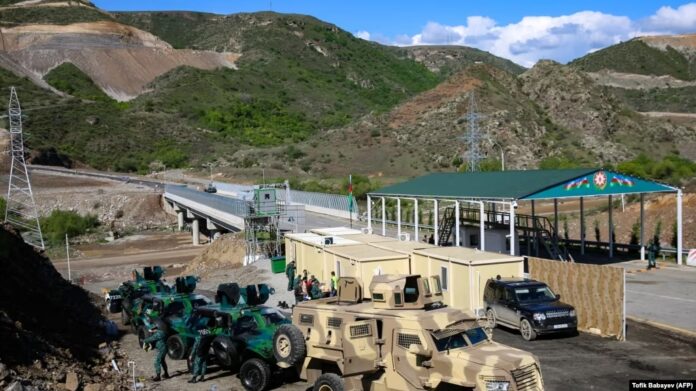By Heghine Buniatian and Astghik Bedevian
YEREVAN (Azatutyun) — Azerbaijan has rejected Russia’s latest calls for an immediate end to its seven-month blockade of Nagorno-Karabakh’s only land link with Armenia, which has led to a serious humanitarian crisis in the Armenian-populated region.
In a weekend statement, the Azerbaijani Foreign Ministry defended Baku’s decisions to set up a checkpoint in the Lachin corridor and block relief supplies carried out through it by Russian peacekeepers. It accused the peacekeepers of not preventing Armenia’s alleged shipments of weapons and military personnel to Karabakh and not ensuring the “withdrawal of the remnants of Armenian military units from Azerbaijani territory.”
“Armenian army units on the contrary receive assistance under the guidance of the Russian peacekeeping mission,” it said without offering proof of the allegations strongly denied by Armenia.
Baku reacted to Saturday’s statement by the Russian Foreign Ministry expressing serious concern over the worsening shortages of food, medicine and other essential supplies in Karabakh and warning of even more “dramatic” consequences of the blockade.
The Azerbaijani side dismissed those concerns, saying that Karabakh can be supplied with basic necessities from Azerbaijan proper and the town of Aghdam in particular. Azerbaijani President Ilham Aliyev apparently insisted on this idea during his latest trilateral meeting with Armenian Prime Minister Nikol Pashinyan and European Union head Charles Michel held in Brussels on Saturday, July 15.










